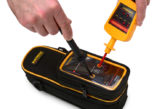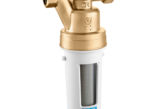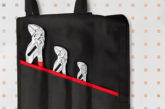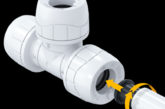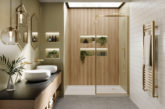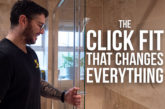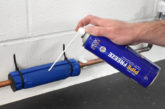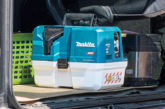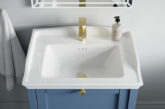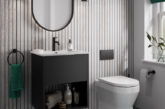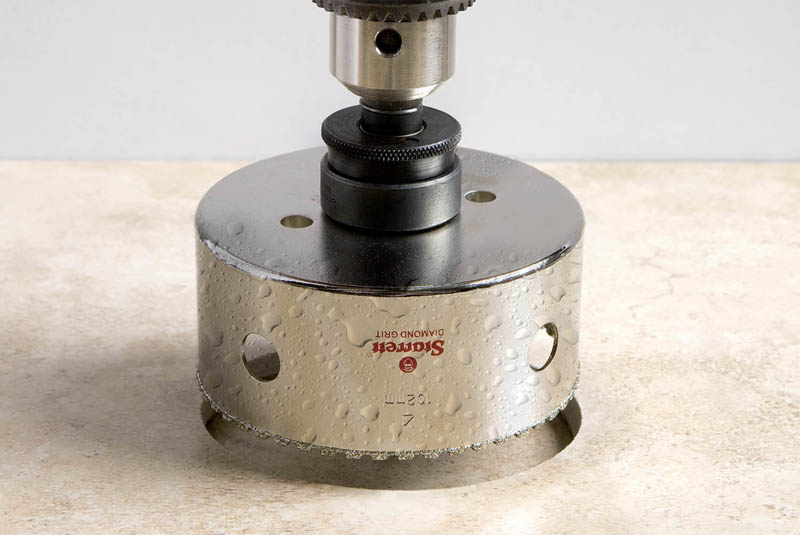
Remember avocado bathroom suites, shag-pile carpets and wood chip walls? We would rather put these 80’s décor trends behind us. However, there’s plenty of new trends that are going to come our way — particularly those that could impact the world of plumbing. Here, John Cove, Marketing Manager at Starrett, looks at trends for bathrooms, kitchens and plumbing and what these trends mean for installers.
Natural and recycled materials
Using natural and organic materials like timber is becoming increasingly popular in bathroom and kitchen design.
Ceramics, glass, metal and stone are familiar materials for bathroom design, however we are now seeing timber accompany these classic textures in the form of wall panels, furniture and decorative features. Open brickwork and rustic features also play a key role in the latest design trends, all of which could provide challenges for installers.
For example, cutting rustic wooden sections or panelling for a small space with a jig saw could result in chipped and unsightly edges if you’re not using a saw blade designed to cleanly cut this material. Installers need a jig saw blade that cuts on both the up and down stroke to reduce break out and chipping to a minimum, such as Starrett’s Dual Cut blade.
Technology
We are entering the age of the smart home, with technology to monitor and control our lives entering every room of the house.
We are used to ‘touch-free’ faucets in public bathrooms, but the digitalisation of our homes will see gadget developments such as intelligent taps, which use facial recognition to automatically adjust water temperature and flow to personal preference. Programmable features, such as timed shower settings, will also become popular as we adapt to new smart meters keeping our energy use in check. Increasing numbers of consumers are also opting for television and touchscreen technology to feature prominently in bathroom designs.
Adding an abundance of tech into confined and humid spaces will result in the need to manage electrical outlets, hide cables and supply safe power solutions. Consumers will expect all of this without compromising the clean, high quality finish that completes their design vision.
This means that installers must be equipped with a range of saw blades and machines that can cut various materials. Mounting faucets and screens on or into ceramic, glass or stone surfaces or panels will require hardened tools, like diamond-coated blades and hole saws to ensure smooth surface finishes and edges.
Size and shape
Another trend we’ve seen emerging is unusually shaped bathtubs. Stepping away from the traditional bath shapes, designers are introducing unusual bathtubs in square, trapezoid and egg shapes. Many of these new designs also use modern faucets or drainage methods, including faucet pipes which come up from the floor and pour into the tub. Modern tastes are also leaning towards ‘floating’ or standalone sinks, rather than cabinet integrated styles, which can also provide difficulties in ensuring that pipes are hidden from sight.
Integrating unusual shapes or ensuring pipe work is hidden from view will require precise and intricate cutting through surfaces like tiles, flooring and wall panels. Tools that are purpose built to deliver detailed and complex shape cutting, while also being able to cut through strong materials like stone or glass without damaging the appearance of the material, are vital for this.
To preserve the overall design and appearance of bathroom space, it is essential that those installing the fixtures, fittings, hardware and decorative pieces keep up with the latest trends. The wrong choice of tool can result in lost time, wasted materials and unhappy customers. Before investing in tools for your next project, speak to an expert like Starrett to make sure you’re getting exactly what you need.


